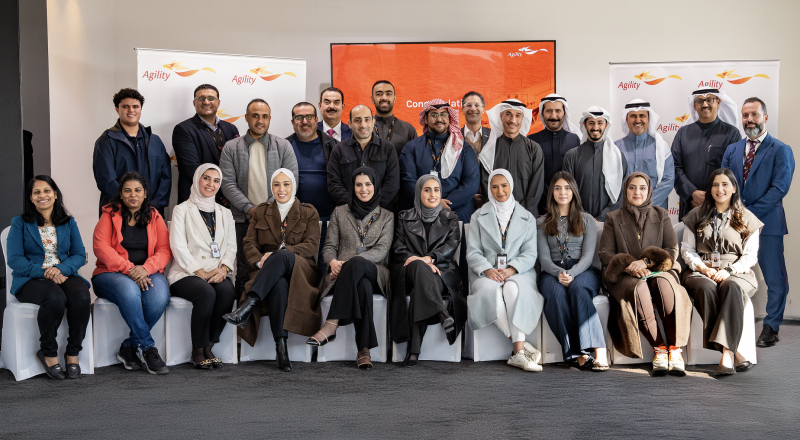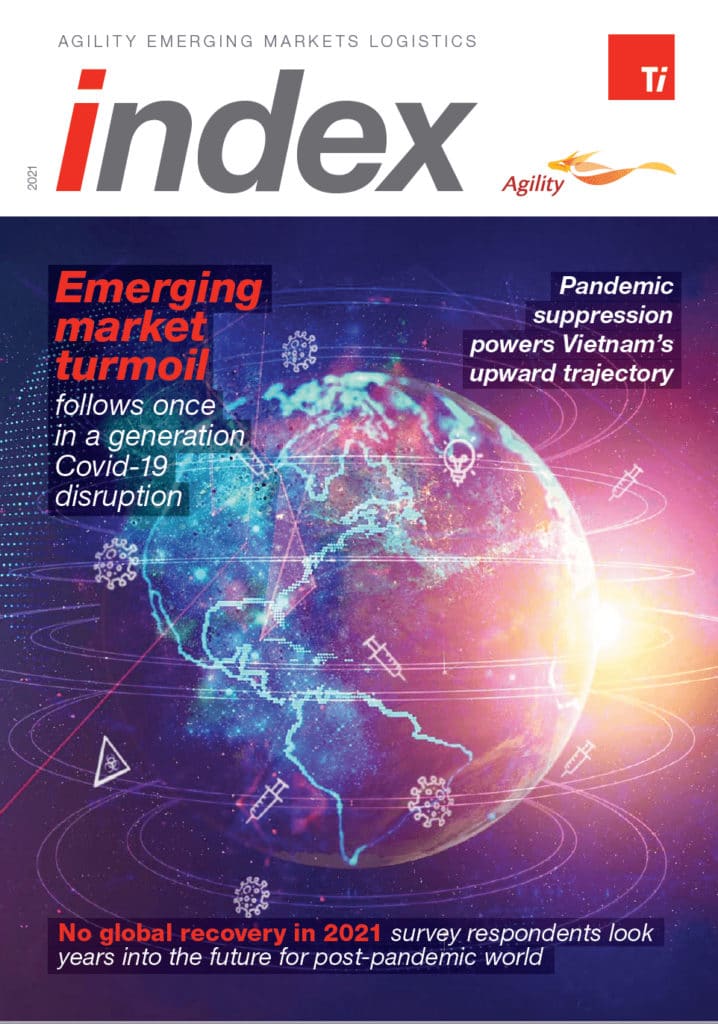

Kuwait-based Agility Logistics Parks customers can log-on to view contracts and make payments.
UK MOD personnel can log-in to the GRMS portal to schedule household relocation shipments.
Kuwait-based Agility Logistics Parks customers can log-on to view contracts and make payments.
UK MOD personnel can log-in to the GRMS portal to schedule household relocation shipments.
Kenya leaps in domestic logistics amid lackluster performance by Sub-Saharan Countries
BAAR, Switzerland – February 9, 2021 – Nigeria improved its business competiveness across three key indicators – business climate, international logistics and domestic logistics in the 2021 Agility Emerging Markets Logistics Index, while other emerging economies in Sub-Saharan Africa had a mixed performance.
Nigeria, Africa’s largest economy, climbs five spots to No. 30 in the annual 50-country Index. It jumps to No.10 for domestic logistics, up six spots from last year; moves up two spots to No. 37 in business fundamentals; and rises two places to No. 43 in strength of international logistics. The 2021 Index report notes that Nigeria has a growing and increasingly middle-class population, a vibrant and expanding online retail market, and a FinTech eco-system that is bringing formal banking services to millions in the country.
The Index, now in its 12th year, ranks 50 countries by factors that make them attractive to logistics providers, freight forwarders, shipping lines, air cargo carriers and distributors. China, India and Indonesia topped the Index. Among countries in Sub-Saharan Africa, only South Africa made the top half of the overall Index, ranking No. 24.

China, India and Indonesia top all countries for domestic logistics; China, India and Mexico are at the top for international logistics, with Kenya leaping five spots to No. 27. In the area of business fundamentals, three countries in Africa were in the top 25: South Africa at No. 22, Tanzania at No. 23 and Kenya No. 25.
“Most Sub-Saharan economies should return to positive growth in 2021, even if they will not reach pre-pandemic levels of economic activity. One factor that could slow them is large levels of debt, which could make it difficult to fund economic stimulus and public health initiatives at the same time,” said Geoffrey White, CEO of Agility Africa. “In Nigeria, Kenya and several other key countries, infrastructure improvements and streamlined customs procedures are galvanizing growth. Progress by regional leaders could accelerate the Continent’s overall recovery.”
Along with the Index, Agility surveyed more than 1,200 supply chain professionals for their views on the disruption caused by the COVID-19 pandemic. A majority, 52%, say they do not foresee a global economic recovery until 2022 or beyond, despite an expectation that Asia, North America and Europe will rebound this year. They see Sub-Saharan Africa and Latin America as the last regions to climb back to pre-pandemic GDP levels.
2021 Index and Survey Highlights
Transport Intelligence (Ti), a leading analysis and research firm for the logistics industry, compiled the Index.
John Manners-Bell, Chief Executive of Ti, says: “The strength of the Agility Emerging Markets Logistics Index has always been to differentiate between those emerging markets which demonstrate resilience in the face of adversity and those which are more fragile. This year is no exception. Although some – especially China and Vietnam – have been able to rebalance around domestic industrial and consumer demand, the majority are still highly dependent on international markets and investment. A lack of global demand, combined with the breakdown of air and sea logistics networks, has had severe consequences for these economies and societies. As the COVID crisis finally unwinds over the next two years, those most resilient will bounce back the fastest. Inevitably, those which have failed to embrace market, trade, governmental and social reforms will be hardest hit by the fallout from the pandemic.”
Agility is a global logistics company with $5.2 billion in annual revenue and 26,000+ employees in more than 100 countries. It is one of the world’s top freight forwarding and contract logistics providers, and a leader and investor in technology to enhance supply chain efficiency. Agility is a pioneer in emerging markets and one of the largest private owners and developers of warehousing and light industrial parks in the Middle East, Africa and Asia. Agility’s subsidiary companies offer fuel logistics, airport services, commercial real estate and facilities management, customs digitization, and remote infrastructure services.
For more information about Agility, visit Agility.com
Twitter: twitter.com/agility
LinkedIn: linkedin.com/company/agility
YouTube: youtube.com/user/agilitycorp
For more information:
Sabrina Mundy
Man Bites Dog
+44 (0) 7841 632 863
[email protected]
Transport Intelligence (Ti) is one of the world’s leading providers of expert research and analysis dedicated to the global logistics industry. Utilizing the expertise of professionals with many years of experience in the express, road freight and logistics industries, Transport Intelligence has developed a range of market-leading web-based products, reports, profiles and services used by many of the world’s leading logistics suppliers, consultancies, banks and users of logistics services.
For further information, please contact Michael Clover, Ti’s Head of Commercial Development, [email protected]
Telephone: +44 (0)1666 519907
Web: ti-insight.com
Twitter: @Ti_insight
LinkedIn: Transport Intelligence